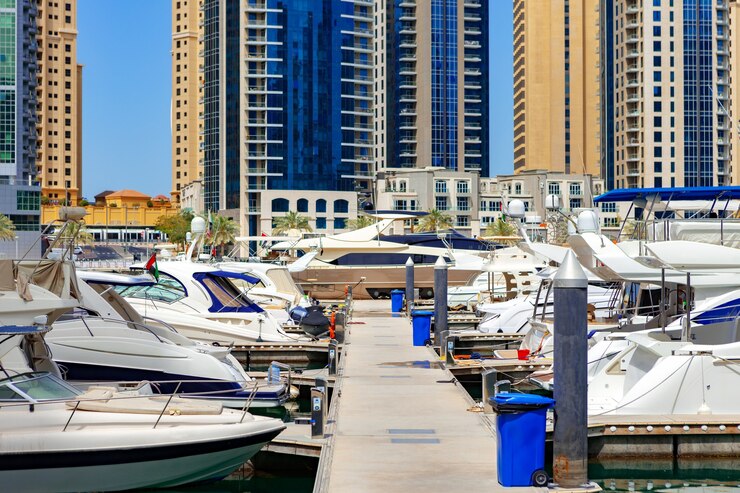Marinas are bustling hubs of activity, where boats come and go, and people enjoy various waterfront activities. But have you ever wondered what it takes to keep these places running smoothly? That’s where Marina Facilities Management comes in. This essential service ensures that marinas operate efficiently, safely, and provide a great experience for all visitors. In this article, we’ll dive deep into the world of Marina Facilities Management, exploring what it involves, why it’s important, and how it impacts everyone who uses these facilities.
Introduction to Marina Facilities Management
Imagine you’re visiting a marina on a sunny day. You see boats docked neatly, staff assisting boat owners, and facilities that are clean and well-maintained. This seamless experience is no accident—it’s the result of meticulous planning and execution by Marina Facilities Management professionals. This field involves overseeing all aspects of marina operations to ensure a safe, efficient, and enjoyable environment for everyone.
The Role of Marina Facilities Management
So, what exactly does Marina Facilities Management entail? At its core, it’s about managing all the resources, staff, and services needed to run a marina. This includes everything from maintaining the docks and equipment to ensuring safety protocols are followed and providing excellent customer service. It’s like being the conductor of an orchestra, making sure every part works together harmoniously.
Key Components of Marina Facilities Management
Infrastructure Management
One of the primary responsibilities is the upkeep of physical infrastructure. This includes docks, piers, boat slips, and other essential facilities. Regular inspections and maintenance are crucial to prevent accidents and ensure longevity.
Facility Services
Beyond the docks, marinas often have a range of facilities such as restrooms, showers, laundry services, and lounges. Keeping these clean, functional, and well-stocked is vital for customer satisfaction.
Operational Oversight
Day-to-day operations require constant supervision. This includes scheduling, staff management, and ensuring that all marina services run smoothly without any hiccups.
Safety and Security Measures
Safety is paramount in any marina. With water, electricity, and various moving parts involved, there’s a lot that can go wrong. Marina Facilities Management involves implementing and maintaining strict safety protocols to protect both people and property. This includes regular safety drills, adequate lighting, surveillance systems, and emergency response plans.
Environmental Considerations
Marinas are often located in environmentally sensitive areas. Thus, Marina Facilities Management must balance operational efficiency with environmental stewardship. This involves adhering to regulations, managing waste properly, and implementing eco-friendly practices such as using biodegradable cleaning products and encouraging sustainable boating practices.
Customer Service Excellence
A key part of Marina Facilities Management is providing exceptional customer service. This means training staff to be knowledgeable, helpful, and friendly. It’s about creating a welcoming atmosphere where visitors feel valued and well taken care of. Good customer service can turn a one-time visitor into a regular patron.
Technological Innovations
In today’s digital age, technology plays a significant role in Marina Facilities Management. From online booking systems to advanced security measures, tech innovations help streamline operations and enhance the user experience. Implementing smart technologies like automated lighting, weather monitoring systems, and mobile apps for boaters can significantly improve efficiency and satisfaction.
Maintenance and Repairs
Just like any other facility, marinas require regular maintenance and occasional repairs. This can range from routine cleaning and painting to fixing broken equipment. Having a proactive maintenance plan helps prevent costly repairs down the line and ensures everything is in top-notch condition.
Financial Management
Running a marina involves significant financial oversight. Budgeting, accounting, and financial planning are crucial to ensure the marina remains profitable. This includes managing expenses, setting competitive pricing for services, and finding ways to increase revenue, such as hosting events or offering premium services.
Training and Staff Development
The staff is the backbone of any marina. Investing in their training and development is essential for smooth operations. This includes regular training sessions, professional development opportunities, and fostering a positive work environment where staff feel valued and motivated.
Challenges in Marina Facilities Management
Managing a marina comes with its unique set of challenges. Weather conditions, fluctuating demand, and environmental regulations can all pose significant hurdles. However, with careful planning and a proactive approach, these challenges can be managed effectively.
Future Trends in Marina Facilities Management
The future of Marina Facilities Management looks promising, with several trends set to shape the industry. These include increased use of sustainable practices, greater reliance on technology, and a focus on enhancing customer experiences. By staying ahead of these trends, marinas can continue to thrive and meet the evolving needs of their patrons.
Conclusion
Marina Facilities Management is a complex but essential field that ensures marinas operate smoothly and provide a great experience for visitors. From maintaining infrastructure to providing top-notch customer service, every aspect plays a crucial role in creating a welcoming and efficient marina. As the industry continues to evolve, staying abreast of new trends and innovations will be key to success.
